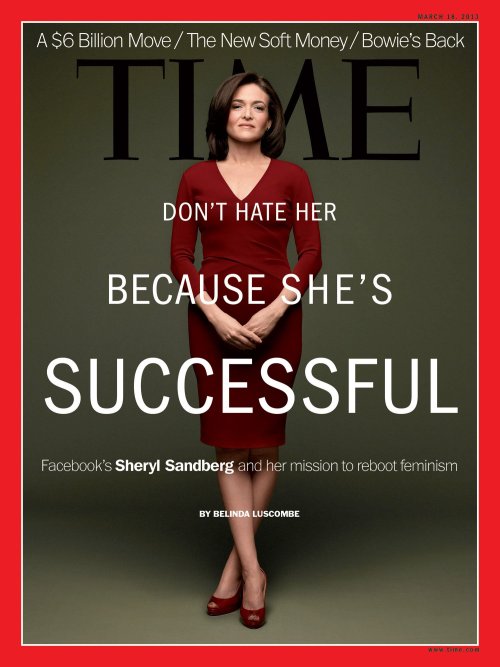#lean in
A Feminism Where ‘Lean In’ Means Leaning On Others by Gary Gutting and Nancy Fraser
This interview, the latest in a series on political topics, discusses philosophical issues concerning feminism. My interviewee is Nancy Fraser, professor of philosophy and politics at The New School. She is the author of “Fortunes of Feminism: From State-Managed Capitalism to Neoliberal Crisis.”
G.G.: Why can’t responding to feminist concerns be seen as just one major step in correcting the social and economic flaws of our capitalist society, not a fundamental transformation of the system?
N.F.: It certainly can be seen that way. But I am questioning whether today’s feminism is really advancing that process. As I see it, the mainstream feminism of our time has adopted an approach that cannot achieve justice even for women, let alone for anyone else. The trouble is, this feminism is focused on encouraging educated middle-class women to “lean in” and “crack the glass ceiling” – in other words, to climb the corporate ladder. By definition, then, its beneficiaries can only be women of the professional-managerial class. And absent structural changes in capitalist society, those women can only benefit by leaning on others — by offloading their own care work and housework onto low-waged, precarious workers, typically racialized and/or immigrant women. So this is not, and cannot be, a feminism for all women!
But that is not all. Mainstream feminism has adopted a thin, market-centered view of equality, which dovetails neatly with the prevailing neoliberal corporate view. So it tends to fall into line with an especially predatory, winner-take-all form of capitalism that is fattening investors by cannibalizing the living standards of everyone else. Worse still, this feminism is supplying an alibi for these predations. Increasingly, it is liberal feminist thinking that supplies the charisma, the aura of emancipation, on which neoliberalism draws to legitimate its vast upward redistribution of wealth.
G.G.: Another major feminist concern has been what many see as a “rape culture,” particularly on college campuses. What’s your view of this?
N.F.: Well, this is certainly a hot-button issue today, and I must confess that I have mixed feelings about that. This is in part because I always worry when one issue becomes so dominant that it eclipses the rest of the feminist agenda — as abortion has often done in the United States. But it is also because I have a certain feeling of déjà vu — it’s as if we are replaying a previous argument between a “protectionist” strand of feminism, focused on violence against women and seeking remedies through criminal law, and another, liberationist strand, which seeks to validate women’s agency and sexual freedom.
Personally, I have always to wanted to develop a third approach that would assure not only sexual autonomy for women but also civil liberties for everyone. And I would like this approach to deal not only with sexual assault but also with other, more impersonal or systemic forms of coercion that limit women’s autonomy in sex and in other spheres. For example, I’d like to reclaim the insights of the 1970s “battered women’s movement,” which stressed the importance not only of criminal sanctions, but also of “exit options” in the form of decent, affordable housing and jobs that pay enough for a woman to support herself and her children.
Really, really great interview that highlights the shortcomings of liberal feminism. Gary’s question about rape culture seemed to come out of nowhere, but I love Nancy’s systematic approach to the issue by refocusing agency as not only the right to say yes, but also the ability to say no without harmful consequences.
Demonizing the Poor by Sanford Schram and Joe Soss
Harsh restrictions on welfare don’t limit fraud and abuse. They advance the interests of the rich and powerful.
Makers, Takers, and Welfare Queens
Now as in the past, elites have rolled out tales of a parasitic and undeserving poor to deflect public anger from themselves. Lazy and criminal “takers” who abuse the goodwill of hardworking taxpayers are offered up as a handy scapegoat for the new hard times and a ready explanation for fiscal shortfalls.
Deeply racialized stories of a threatening underclass captivate the public imagination, while on the periphery lobbyists and public officials rewrite policies and administrative procedures to redistribute wealth upward. The welfare queen and the street criminal are brandished to discredit progressive redistribution, pare back social protections, and justify ever-tougher modes of policing and social control.
What must be understood, then, is the critical role that controversial policy proposals play in constructing this political spectacle. For many observers, it’s easier to see how racial stereotypes and stigmatized images of the poor are used to advance policy agendas than to recognize the reverse — the powerful ways that policies and their rationales work to cultivate racial understandings and images of the poor.
While public policies dispense material benefits and burdens, they also perform a symbolic politics. Policies that force the poor to work send a powerful signal that they would not work unless forced to do so. Proposals that target social groups for special efforts to police irresponsible and criminal behavior tell the public how members of these groups behave. Needless restrictions on welfare recipients’ profligate ways demonize their targets (widely perceived as poor and black or Latino) and focus public attention on reforming their alleged pathologies.
The Material Politics of Welfare
Public officials today are under strong pressure to bring budgets into line and, with powerful political forces arrayed against raising tax revenues, predictably look to cut expenditures on the disadvantaged.
Overt program and benefit cuts are the most visible responses, but they are also the most likely to arouse opposition. Policies designed to limit fraud and regulate how benefits are used can often achieve the same goals — and avoid the potential political liabilities of appearing cold-hearted.
“I support helping people in need,” the old standby goes, “I just want to make sure benefits go to the people who truly need them and don’t encourage bad choices that will trap them in poverty.”
The public promotion of stigmatizing new welfare rules can demonize welfare usage to the point where even the most desperate eligible people resist claiming them. And just as allegations of voter fraud can be used as a pretext for new rules that limit voting rights and access, campaigns to combat welfare fraud give rise to new methods for denying applicants, threatening recipients with the specter of criminal punishment, and subjecting clients to all manner of degrading questions and check-ups.
This is one of the reasons I support Bernie Sanders instead of Hillary Clinton.
In my latest blog post, I talk about leaning into my greatest fears. When something scares the shit out of me, my reaction is to learn everything I can about it. It’s my way of bringing the monsters out of the dark and into the light.
https://www.danstalter.com/leaning-into-my-fears/
Post link
How Do You Feel About Sheryl Sandberg’s Call To Lean In?
“Whether you are starting your own company, signing up for that math class or endeavoring in your first college major, applying for that job or dream school, boldness and being sure of yourself in itself is rewarded”
Read more: http://forgirlsinscience.org/how-do-you-feel-about-sheryl-sandbergs-call-to-lean-in/
Post link
Are you a woman who prides herself on being responsible? If you exercise, lean in, wear sunscreen, check homework, call your parents and cleanse, are you also prepared for life’s legal challenges? Do you love to ask yourself a series of questions that will ultimately tell you to buy into something?
If you answered yes to any of these questions, then Lisa Green, legal life coach, is your answer. A cross between Suze Orman and Nora Ephron, Lisa’s witty and easy-to-follow book, On Your Case: A Comprehensive, Compassionate (and Only Slightly Bossy) Legal Guide for Every Stage of a Woman’s Life, explains the simple legal steps you can take now to protect yourself and your family.
Lisa Green will be at Sixth & I to discuss her book and offer advice on Wednesday, February 18 at 7:00 pm. Get your tickets here.

Riley Reid
Feminist Magician Wants Women in Magic to Lean In
According to the Magic Castle’s only resident female magician, if more women want to be magicians, they just need to grow a pair of balls. Preferably crystal ones.
Post link








